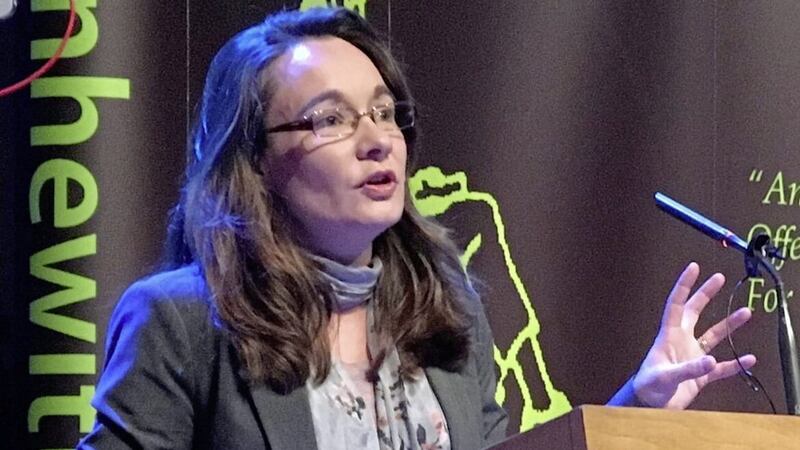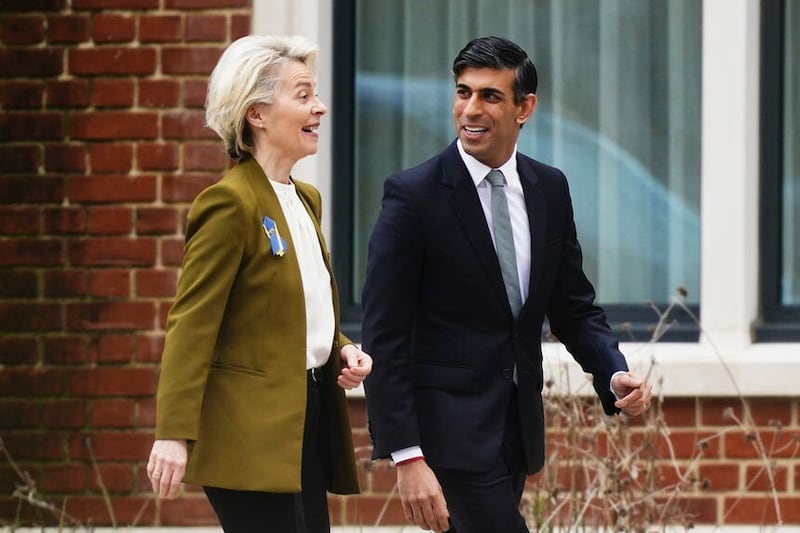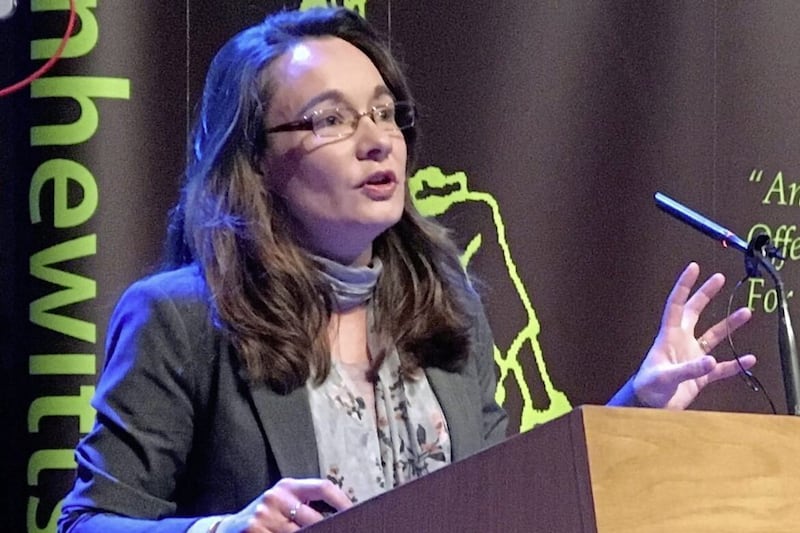THE BRITISH government's controversial protocol legislation could create “significant uncertainty” for business and trade in Northern Ireland, a new report by a group of academics concludes.
The report by think tank UK in a Changing Europe finds the Northern Ireland Protocol Bill, which today begins its second reading in the House of Lords, could further strain relations between London and Brussels and "worsen inter-community relations" in the north.
The authors, which include former senior Stormont civil servant Andrew McCormick and Queen's University's Katy Hayward, describe the bill as a “complicated piece of legislation” which would have major implications in three key areas – for business, the constitution and UK-EU relations.
The bill aims to disapply aspects of the post-Brexit trading arrangements agreed with the EU and ratified by Westminster in January 2020.
Ahead of today's second reading, which it is understood will not include any votes, there were reports that a significant number of peers plan to block its passage.
According to The Guardian, when the bill reaches committee stage later this month, peers will seek to delay it indefinitely with an amendment preventing it completing its House of Lords stages until an impact assessment is concluded.
DUP leader Sir Jeffrey Donaldson described the peers' plan as an "act of sabotage" that would delay the restoration of the Stormont institutions.
He said whether by legislation or by negotiation, the objectives of the bill needed to be met.
"This represents the best way to have the institutions restored," the Lagan Valley MP said.
Former SDLP leader Baroness Margaret Ritchie urged the British government to "abandon this undemocratic piece of legislation".
"The NI Protocol Bill is contrary to democratic principles – it breaches international law, gives ministers powers in regulations for which there will be no parliamentary scrutiny or accountability and will wreak endless havoc on our economy," she said.
"I support the protocol and believe that there is a need for mitigations to ensure that it works to its full potential for everyone."
Yesterday, US government official Derek Chollet, who was in Belfast for meetings with Stormont's main parties and Secretary of State Chris Heaton-Harris, warned British Prime Minister Liz Truss not to act unilaterally on the protocol.
After his meeting, Mr Heaton-Harris said Washington and the UK shared a commitment to peace and prosperity and to upholding the Good Friday Agreement.
Sinn Féin deputy leader Michelle O'Neill described Mr Chollet's visit as "significant".
"There is no doubt the US has political influence to bear, they have been very strong in making it clear that any breach of the Good Friday Agreement will mean no trade deal," she said.
The report published today by UK in a Changing Europe says a major change in rules would "place traders in the position of either failing to comply with UK law or failing to comply with international law".
"If a dual-regulatory regime is introduced, which recognises UK and EU standards in NI, this could be beneficial for traders from Great Britain but could pose a challenge for NI traders caught between the two regimes," the think tank said.
The report also raises concerns about so-called ‘super’ Henry VIII powers, that would enable ministers to change existing rules for trade, subsidies and governance of the protocol, while it warns that the bill "could lead to an escalation of tensions between the UK and EU" because Brussels regards it as a breach of international law.
Professor Hayward said: "This is a bill that is purportedly intended to protect the 1998 Good Friday (Belfast) Agreement, but as it stands it looks set to bring new levels of economic and political uncertainty for Northern Ireland – whilst not avoiding the need to call new assembly elections after October 28.
"As a piece of legislation, it manages to be both exceptionally far-reaching and strikingly deficient."








